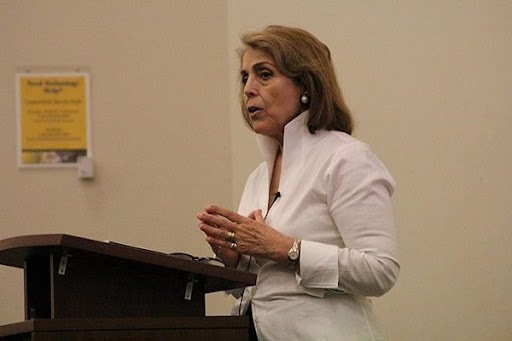
TABNAK –Shireen Tahmaasb Hunter, a professor of political science at Georgetown University, tells that the retaliatory attacks by Hezbollah demonstrated that Israel faced the risk of having to fight on two fronts: Gaza and Lebanon.
She adds, “Should this happen, it would stretch the capabilities of the Israeli army. However, thus far, Hezbollah's attacks have not been of a magnitude to seriously undermine Israel's military situation.”
Following is the text of the interview:
Q: Lebanon's Hezbollah targeted the positions of the Israeli army with hundreds of rockets, missiles and drones in a revenge operation. What was the importance of this operation?
A: The retaliatory attacks by Hezbollah demonstrated that Israel faced the risk of having to fight on two fronts: Gaza and Lebanon. Should this happen, it would stretch the capabilities of the Israeli army. However, thus far, Hezbollah's attacks have not been of a magnitude to seriously undermine Israel's military situation.
Q: Hezbollah has carried out this operation with such volume and extent independently. In terms of deterrence, what message does this operation convey to Israel?
A: Israel and Hezbollah have been fighting for nearly two decades and yet neither has been able to destroy the other. In terms of preventing future Israeli attacks, recent attacks by the Hezbollah would be of limited value. What these attacks and counterattacks do is to increase the risk of an all out war. Both sides are engaged in a dangerous game hoping that they could control the cycle of violence. However, matters could get out of hand. Middle East's problems have no military solution. More than four decades of nearly continuous warfare has only exacerbated problems.
Q: According to what Hezbollah announced, this operation is the first stage of the revenge operation following the assassination of its senior commander, Fuad Shukr. Do you imagine the next stages with what volume and when will they probably happen?
A: Short of a full-scale invasion of Israel, Hezbollah does not have many more options. A full-scale invasion could invite outside intervention, which would be damaging to Hezbollah.
Q: Is it possible; Following this Hezbollah operation, Iran's retaliatory operation against Israel is also imminent?
A: Iran faces a difficult choice. Not responding to Israel's killing of Haniyah would undermine his reputation as a reliable and powerful ally of the Resistance Axis. However, attacking Israel runs the risk of inviting American retaliation against Tehran. There is also a possibility that the latest attacks and counter attacks are orchestrated so as to face the face of local actors, including Iran, without leading to a broader war. The risk, however, is that all actors could lose control of the events. In my view, Iran should be careful in calibrating the risks and benefits of a counterattack.